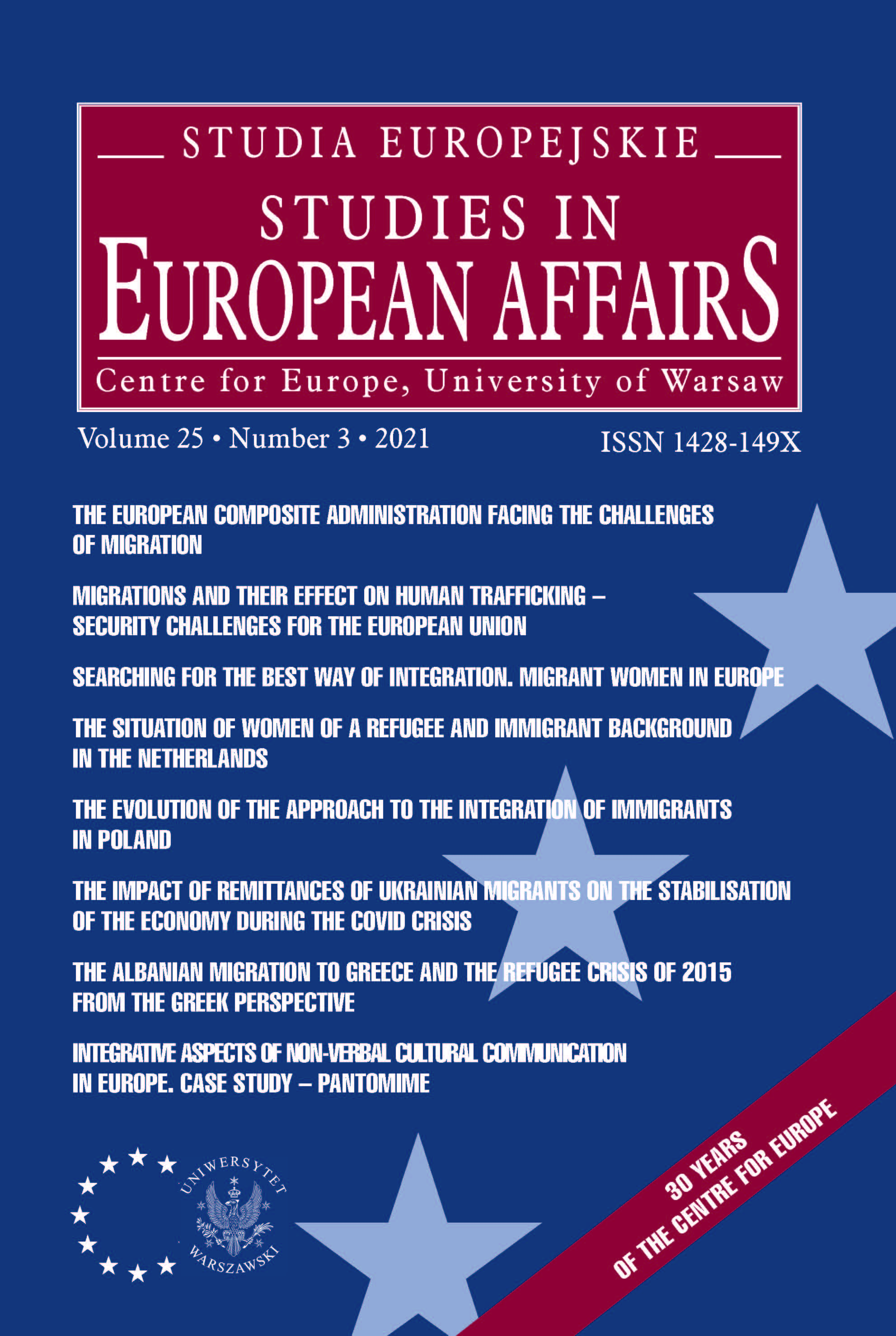The Impact of Remittances of Ukrainian Migrants on the Stabilisation of the Economy During the Covid Crisis
The Impact of Remittances of Ukrainian Migrants on the Stabilisation of the Economy During the Covid Crisis
Author(s): Iryna Gerlach, Lilia UkraynetsSubject(s): Politics / Political Sciences, Economy
Published by: Centrum Europejskie Uniwersytetu Warszawskiego
Keywords: Labour Migration; Remittances, Migration; Ukrainians; European Union; COVID-19; Crisis;
Summary/Abstract: International labour migration is a global process that has affected the populations of all countries and continents. Today, migrants face a new additional barrier – the COVID-19 pandemic, which has drastically affected all forms of human mobility. Today, labour-based migration from Ukraine is directed mainly to EU Member States. The main motives for international labour migration is the potential of earning money, financial security of the family etc. Accordingly, the consequence of international migration is the inflow of money into the country of migrant origin. Remittances from migrant workers are an important source of income for Ukraine. Despite the COVID-19 pandemic, there has been an increase in migrant remittances, contributing to the development of households, human potential, the reduction of poverty and inequality, and the inflow foreign currency. This article proposes an econometric model of the impact of migrant remittances on the stabilisation of the country’s economy during the pandemic. As a result of the calculations, it was found that the income from people working abroad initially reduces the deviation of GDP from the equilibrium trend, but over time there is a clear procyclical impact. This feature is favourable for the Ukrainian economy and may mean that migrant transfers in times of crisis help to overcome the effects of global economic downturns.
Journal: Studia Europejskie
- Issue Year: 25/2021
- Issue No: 3
- Page Range: 99-114
- Page Count: 16
- Language: English

